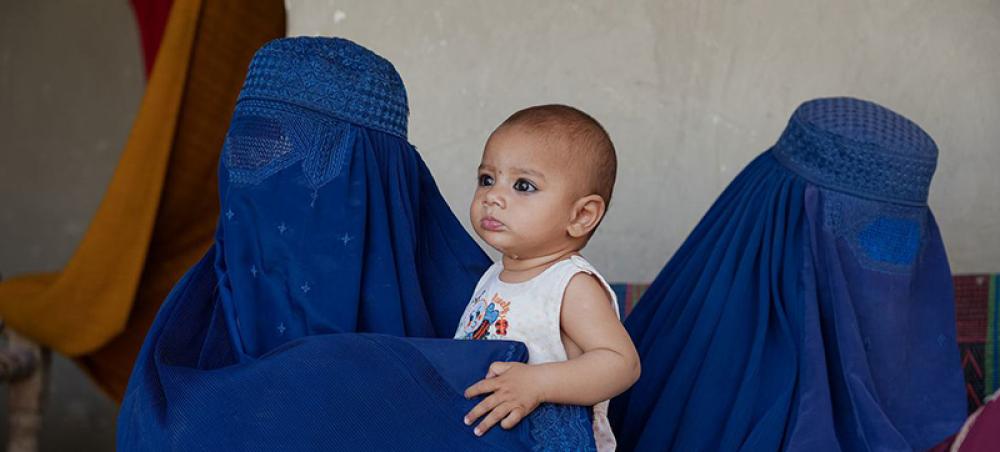Just Earth News | @justearthnews | 17 Feb 2024

Afghan women told a UN survey that risks to their security increased whenever the de facto authorities adopted new decrees targeting them. Photo Courtesy: WFP/Mohammad Hasib Hazinyar
Afghan women fear arrest, harassment and further punishment whenever a new Taliban decree is announced, according to a new multi-agency UN report issued on Friday based on an extensive survey of women across the country.
Police enforcement has increased harassment in public spaces and further limited women’s ability to leave their homes, according to testimony from 745 Afghan women participating in the latest survey by UN Women, International Organization for Migration (IOM) and the UN’s Assistance Mission in Afghanistan (UNAMA).
The insights follow recent reports of the arbitrary and severe enforcement of the hijab decree, particularly in Kabul, the agencies said – which began publishing quarterly consultations with diverse Afghan women a year after the Taliban took power in August 2021.
Since then, the de facto authorities have introduced more than 50 decrees that directly curtail the rights and dignity of women, Friday’s report states.
Consultations took place between 27 January and 8 February, with UN Women, IOM and UNAMA gathering views online and in-person – where it was safe to do so – and via group sessions and individual telesurveys. The agencies were able to reach women across all of Afghanistan’s 34 provinces.
Participants were asked to give views on the period from October to December 2023.
Fears mount
The results show that women fear arrest and the long-lasting stigma and shame associated with being taken into police custody, the report stated.
In addition, over half of women – 57 per cent – felt unsafe leaving the house without a mahram, a male guardian. Risks to their security and their anxiety levels increased whenever a new decree was announced specifically targeting them.
Only one per cent of women indicated that they had “good” or “full” influence on decision making at the community level, a major decrease from 17 per cent in January 2023.
Lack of agency
A lack of any safe public space for women to gather and share views and experiences, build communities and engage on issues they considered important left them “without a pathway to participate in or influence decision making”, the report said.
Women’s self-reported “good” or “full” influence over household decisions has drastically decreased from 90 per cent in January 2023 to just 32 per cent this January.
They continued to link their lack of rights, educational prospects and jobs, to declining influence at home, the report found.
Gender roles and subordination
The women also outlined the intergenerational and gendered impact of the de facto authorities’ restrictions and the accompanying conservative shifts in social attitudes towards children.
Some respondents said boys appeared to be internalizing the social and political subordination of their mothers and sisters, reinforcing a belief that they should remain in the home in a position of servitude.
Meanwhile, girls’ perceptions of their prospects were changing their values and understanding of their future and potential, the findings showed.
International action
Thirty-two per cent of respondents stated that international recognition of the de facto authorities should happen only after reversing all restrictions, while 25 per cent of them said it should follow the reversal of some specific bans and 28 per cent said that recognition should not happen at all, under any circumstances.
In July 2023, a similar question found that 96 per cent of women maintained that recognition should only occur after improvements in women’s rights or that it should not occur at all.
Best way forward
Some respondents expressed deep disappointment with some UN Member States who in their efforts to engage the Taliban, were overlooking the severity of what is an unprecedented women’s rights crisis and the associated violations of international law, based on treaties ratified by previous Afghan governments.
Some respondents argued that one way for the international community to improve their situation would be to link international aid to better conditions for women and to provide opportunities for women to talk directly with the Taliban.